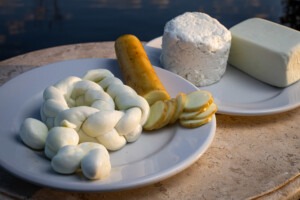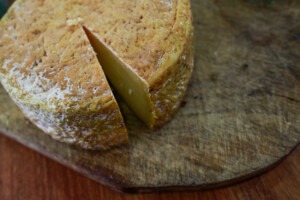
Brazil’s climate and green pastures guarantee the ideal dairy production. With our approach to tropical agriculture, we have bred superior dairy cows adapted to the tropics. Brazil has one of the largest dairy cow herds in the world and is one of the largest milk and cheese producers.
Producers have been improving the quality of milk by increasing the production of solids (fat and protein), strengthening the implementation of Good Agricultural Practices (GAP), and increasing control of the production process.
Quality
Five local cheese products – canastra, serro, Colônia de Witmarsum, Marajó and Artesanal Serrano – are protected by Geographical Indications (GIs). GIs are used in international trade to recognize products of a specific geographical origin that brings unique qualities.
The indications are registered with the National Institute of Industrial Property (INPI) and are recognized by the WTO as a way to value and protect products in international trade negotiations.


Social and economic relevance
Dairy farming generates about 3.6m direct jobs and is responsible for 40% of the jobs in rural areas. Around 80% of dairy farmers are smallholders. The dairy sector contributes to the local economy in 5,551 of Brazil’s 5,569 municipalities.
While most dairy products are consumed domestically, the steady expansion of milk production gives Brazil the opportunity to become a major exporter of dairy. Brazil currently exports to more than 110 countries. Current exports are mostly focused on milk powder, whole/skimmed milk, UHT and condensed milk, and cheeses.